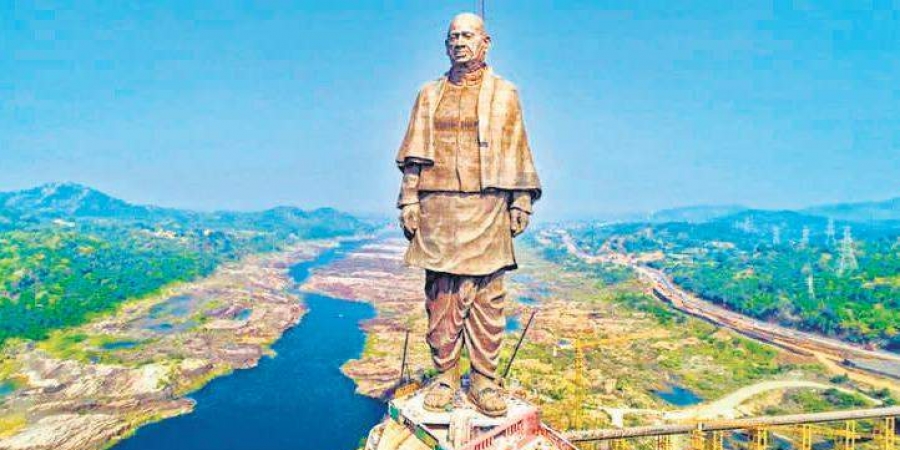Returning a hero to his rightful legacy
- By : Anirban Ganguly
- Category : Articles

Back in 2003, as Chief Minister of Gujarat, Modi had personally initiated and had overseen the bringing back of legendary revolutionary Shyamji Krishna Varma’s ashes from Geneva.
Commemorating icons, perpetuating their memories, recognising their contributions and enshrining their memory in the collective consciousness of the people is an essential task of nation-building or national reconstruction. By hoisting the national flag on October 21 at the iconic Red Fort, on the 75th anniversary of the formation of the Azad Hind government by Netaji Subhas Chandra Bose and by eventually dedicating the Statue of Unity to the nation on October 31, Prime Minister Narendra Modi reiterated his commitment to that fundamental task of nation-building. This is not a newfound fascination for Modi. Recognising unsung or marginalised icons has been an intrinsic part of his world-view.
Back in 2003, as Chief Minister of Gujarat, Modi had personally initiated and had overseen the bringing back of legendary revolutionary Shyamji Krishna Varma’s ashes from Geneva. He had brought back the ashes and enshrined them with honour in Varma’s hometown Mandvi in Gujarat. Varma’s wish, articulated 73 years ago, that his ashes be sent back only to a free India, was fulfilled by Modi.
No other Chief Minister or government before him had time for it since Varma’s legacy would not fetch votes or yield political dividend. It did not matter to them that the act could strengthen the sense of the nation in the collective consciousness and could generate positive emotions towards nation-building.
When one looks at how our narratives—post-Independence—have treated the revolutionary nationalists, the members and progenitors of the ‘Agni Yug’ (age of fire), one sees the truth in Modi’s point that the history of our freedom struggle has invariably been weaved around a few personalities and a particular family to the detriment of thousands of those others who have also pushed the wheel of freedom and have often burnt themselves in the act.
The fun that the Congress and its president have often made of Modi’s pledge to build the Statue of Unity—the Congress’s ridicule increased as the construction neared completion—stems from a deep-rooted insecurity that the commemoration of other icons and their contributions would subsume the hitherto dominant narrative of a single family having sacrificed for the nation. The noise thus, that some have made over the Azad Hind government commemoration, also emanates from that original insecurity.
However, Modi’s act of unfurling the Tricolour and of paying tribute to ‘Subhas Babu’ has moved millions across India, especially in Bengal. It has struck a chord in the mass psyche, where Netaji’s legacy continues to evoke deep emotions. Most saw it as a symbolic act of reinstating Netaji in the soul of India. The cynics, of course, tried to paint it with the political brush, attempted to nitpick and pointed out how Netaji was honoured in the past too. For the mass of India, however, this was one act that mattered most, as did Modi’s act of declassifying the Netaji Files in 2016.
Propelled by the same determination, Modi pledged to build the Statue of Unity in 2010. In making this pledge, too, he was driven by his belief in reinstating forgotten or marginalised icons. Sardar Vallabhbhai Patel represented a decisive leader who combined in himself both idealism and realism. When he had then said, “If only Sardar Patel had been the first prime minister of India…”, Modi had echoed a historic question that many non-indoctrinated Indians have asked themselves.
Over the decades, Patel’s legacy—his unparalleled contribution to unifying modern India—has faced marginalisation. His centenary, which fell in 1975—four months after Emergency was declared—was deliberately ignored and downplayed. It was an unpardonable act of omission. With the unveiling of the Statue of Unity, Sardar will now be forever reinstated in our collective consciousness, never again to be marginalised. Modi has kept his epochal promise.
[email protected]

















